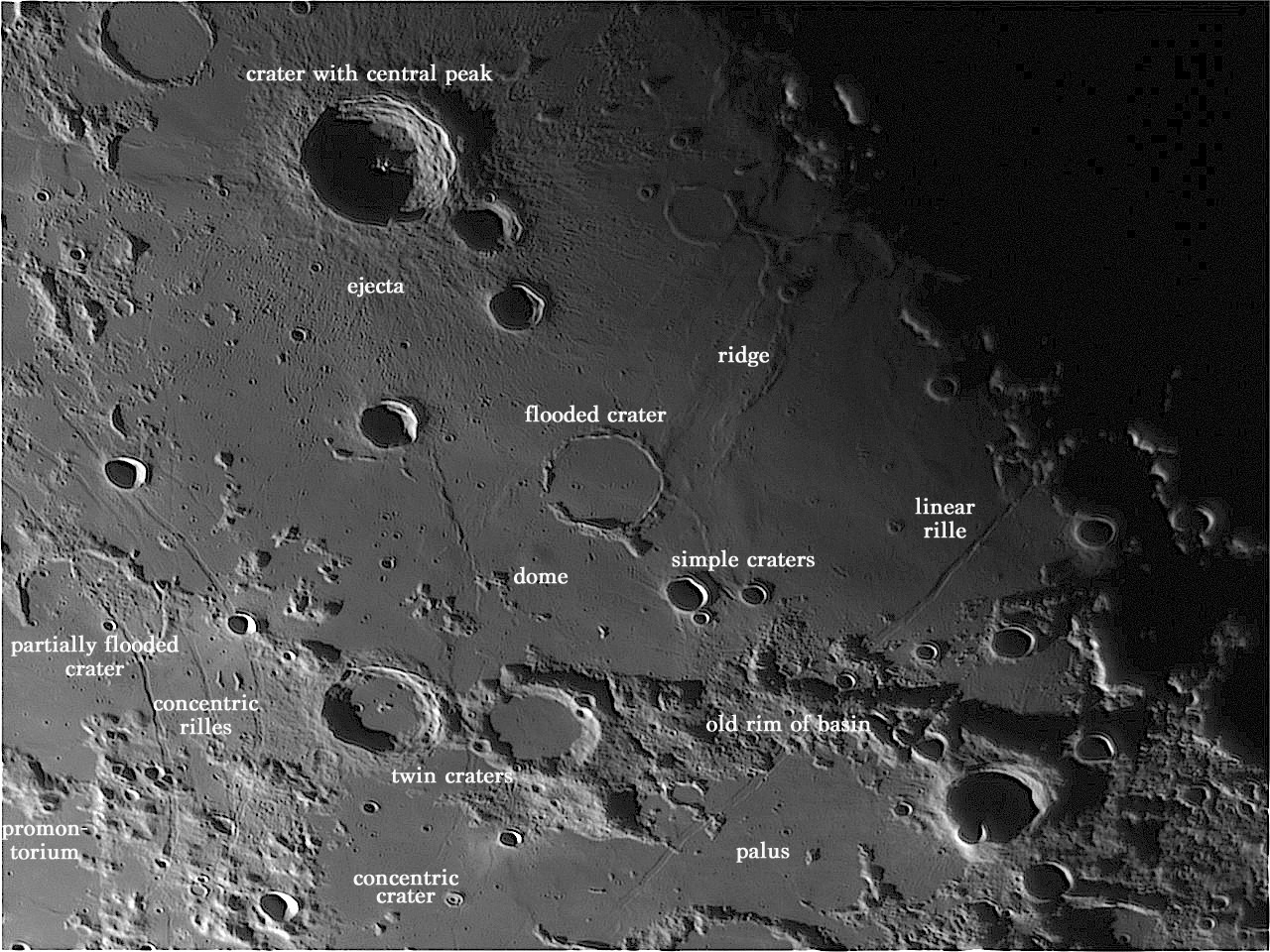Difference between revisions of "October 11, 2013"
| Line 21: | Line 21: | ||
<br /> | <br /> | ||
<strong>Related Links</strong><br /> | <strong>Related Links</strong><br /> | ||
| − | <em>[ | + | <em>[[21st Century Atlas of the Moon|21st Century Atlas]]</em> chart 23.<br /> |
<br /> | <br /> | ||
<p><b>Yesterday's LPOD:</b> [[October 10, 2013|Musings Inspired by a 4" Observation]] </p> | <p><b>Yesterday's LPOD:</b> [[October 10, 2013|Musings Inspired by a 4" Observation]] </p> | ||
Latest revision as of 08:35, 28 October 2018
Terminalogy Tutor

image by Claude Navarro, Toulouse (France)
Here is a different type of annotated image than we have had before. Rather than giving names of features of interest Claude provides the
selenologic term for them. I always link to the chart in the 21st Century Atlas of the Moon (which is being reprinted) that gives the nomen-
clature, but sometimes viewers may not quite know exactly what landforms look like when they read words like ejecta, rille or concentric
crater. I like this example that Claude created and think I will assign making similar ones as an early exercise if I offer an online lunar geology
course in the spring, as I'm considering.
Chuck Wood
Note: Those who follow l'image lunaire du jour, the French version of LPOD will recognize Claude's name - he is one of the faithful translators;
Merci, Claude!
Technical Details
August/30/2013, 04:00 UT. C14 + Basler 1300 + IR Pass 685 filter. Processing with Registax 6 (300 Images on 2000).
Related Links
21st Century Atlas chart 23.
Yesterday's LPOD: Musings Inspired by a 4" Observation
Tomorrow's LPOD: Age Dating a Moon Photo
COMMENTS?
Register, Log in, and join in the comments.



